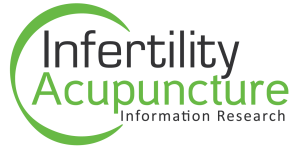When you decide to have a family, you want to get pregnant fast. How can you speed up your fertility journey? Does it feel like you have tried everything? But have you?
Recently I found a fertility acupuncture study from Australia, which has some good tips.
What we know about fertility acupuncture mostly comes from the studies about IVF. In contrast to IVF research, general reproductive acupuncture studies are hard to come by. While we see many IVF patients, about 50% of our couples are trying to conceive naturally, in the privacy of their homes. So studies discussing Chinese Medicine treatment for fertility without IVF are interesting to us and our switched-on patients.
Can you actually get pregnant faster without IVF?
This Australian study explored the effect of acupuncture on fertility awareness and regularity of your cycle. But what they actually discovered will surprise you.
Study authors invited 18–44 years old women who had been trying to conceive without success for at least 12 months.
They randomly divided them into two groups – one group received lifestyle advice on diet and exercise, another group also had weekly acupuncture. All women had to continue with assigned intervention for at least three months.
After three months there was not a big difference in the number of pregnancies between the groups. But those who had acupuncture, conceived in double the speed: 5.5 weeks in the acupuncture group compared to 10.67 weeks in lifestyle. Furthermore, the acupuncture group gave birth to more babies. This means there were fewer miscarriages.
Regardless of all the excitement, there are a few limitations to this study. Firstly, study authors wanted to investigate cycle regularity and fertility awareness, but one of the strongest findings was the time to pregnancy. This study was not designed specifically to measure these outcomes, and further research is needed to confirm the findings. Secondly, it was hard to keep women in the lifestyle group. Most women wanted to have acupuncture, so consequently, the lifestyle group was a bit smaller. This may add some disbalance to the results.
Despite all this research paper is encouraging, it uses the real-life treatment protocol that experienced fertility acupuncturists use in their practices. And women had this natural treatment for at least 3 months – sufficient time to make some difference.
So what’s not to like! Acupuncture is safe and women get pregnant faster. They feel happier with improved quality of life. Their menstrual cycles tend to be more regular.
Another reason why women fall pregnant faster is increased fertility awareness. To put it differently, they were better at timing intercourse for conception.
All in all, isn’t it a perfect package for women exhausted from trying to conceive?
Prior to Conception: The Role of an Acupuncture Protocol in Improving Women’s Reproductive Functioning Assessed by a Pilot Pragmatic Randomised Controlled Trial
Suzanne Cochrane, Caroline A. Smith, Alphia Possamai-Inesedy, and Alan Bensoussan
Abstract:
The global average of couples with fertility problems is 9%. Assisted reproductive technologies are often inaccessible. Evidence points to acupuncture offering an opportunity to promote natural fertility.
This study asked whether providing a multiphasic fertility acupuncture protocol to women with sub/infertility would increase their awareness of fertility and achieve normalisation of their menstrual cycle compared with lifestyle control. In a pragmatic randomised controlled trial sub/infertile women were offered an intervention of acupuncture and lifestyle modification or lifestyle modification only.
Results:
There was a statistically significant increase in fertility awareness in the acupuncture group (86.4%, 19) compared to 40% () of the lifestyle only participants (Relative Risk (RR) 2.38, 95% confidence interval (CI) of 1.25, 4.50), with an adjusted value of 0.011. Changes in menstrual regularity were not statistically significant.
There was no statistical difference in the pregnancy rate with seven women (adjusted ) achieving pregnancy during the course of the study intervention. Those receiving the acupuncture conceived within an average of 5.5 weeks compared to 10.67 weeks for the lifestyle only group.
The acupuncture protocol tested influenced women who received it compared to women who used lifestyle modification alone: their fertility awareness and wellbeing increased, and those who conceived did so in half the time.



